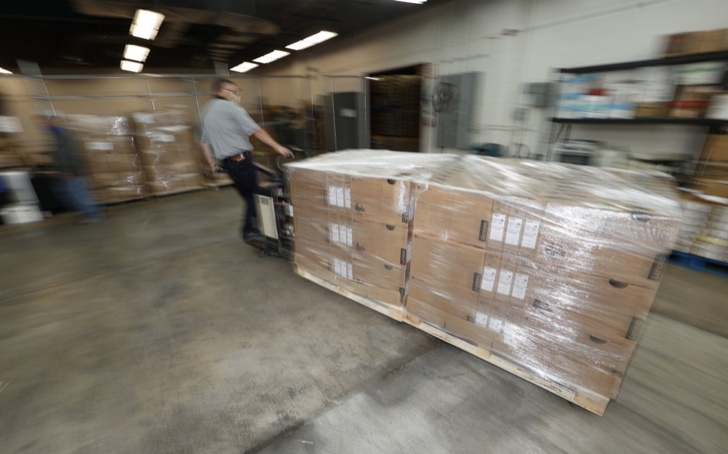
Schools across the United States are facing shortages and long delays, of up to several months, in getting this year’s most crucial back-to-school supplies: the laptops and other equipment needed for online learning, an Associated Press investigation has found.
The world’s three biggest computer companies, Lenovo, HP and Dell, have told school districts they have a shortage of nearly 5 million laptops, in some cases exacerbated by Trump administration sanctions on Chinese suppliers, according to interviews with over two dozen U.S. schools, districts in 15 states, suppliers, computer companies and industry analysts.
As the school year begins virtually in many places because of the coronavirus, educators nationwide worry that computer shortfalls will compound the inequities — and the headaches for students, families and teachers.
Also coming up short: hotspot devices ordered by school districts to help students living in homes without internet service.
Among districts surveyed by the Associated Press that are seeing delays in deliveries because of the laptop shortages: Palm Beach County Public Schools, which awaits 68,000 ordered computers for students. Clark County, Nevada, with Las Vegas, awaits 79,400; Houston, 40,000; Hawaii, 34,000.
“This is going to be like asking an artist to paint a picture without paint. You can’t have a kid do distance learning without a computer,” said Tom Baumgarten, superintendent of the Morongo Unified School District in California’s Mojave Desert, where all 8,000 students qualify for free lunch and most need computers for distance learning.
Baumgarten was set to order 5,000 Lenovo Chromebooks in July when his vendor called him off, saying Lenovos were getting “stopped by a government agency because of a component from China that’s not allowed here,” he said. He switched to HPs and was told they would arrive in time for the first day of school Aug. 26. The delivery date then changed to September, then October. The district has about 4,000 old laptops that can serve roughly half of students, but what about the rest, Baumgarten asks rhetorically. “I’m very concerned that I’m not going to be able to get everyone a computer.”
Chromebooks and other low-cost PCs are the computers of choice for most budget-strapped schools. The delays started in the spring and intensified because of high demand and disruptions of supply chains, the same reasons that toilet paper and other pandemic necessities flew off shelves a few months ago.
Then came the Trump administration’s July 20 announcement targeting Chinese companies it says were implicated in forced labor or other human rights abuses against a Muslim minority population, the Uighurs. The Commerce Department imposed sanctions on 11 Chinese companies, including the manufacturer of multiple models of Lenovo laptops, which the company says will add several weeks to existing delays, according to a letter Lenovo sent to customers.
School districts are pleading with the Trump administration to resolve the issue, saying that distance learning without laptops will amount to no learning for some of the country’s most vulnerable students.
“It’s a tough one because I’m not condoning child slave labor for computers, but can we not hurt more children in the process?” said Matt Bartenhagen, IT director for Williston Public Schools in North Dakota, a district of 4,600 waiting on an order for 2,000 Lenovo Chromebooks. “They were supposed to be delivered in July. Then August. Then late August. The current shipping estimate is ’hopefully” by the end of the year.
The Denver Public Schools district, the largest in Colorado, is waiting for 12,500 Lenovo Chromebooks ordered in April and May. The district has scrambled to find machines, settled for whatever is available and is handing out everything they get to students that need them. Still, when school starts Wednesday, they will be about 3,000 devices short, says Lara Hussain, an IT director for the district.
____
Republished with permission from The Associated Press.



